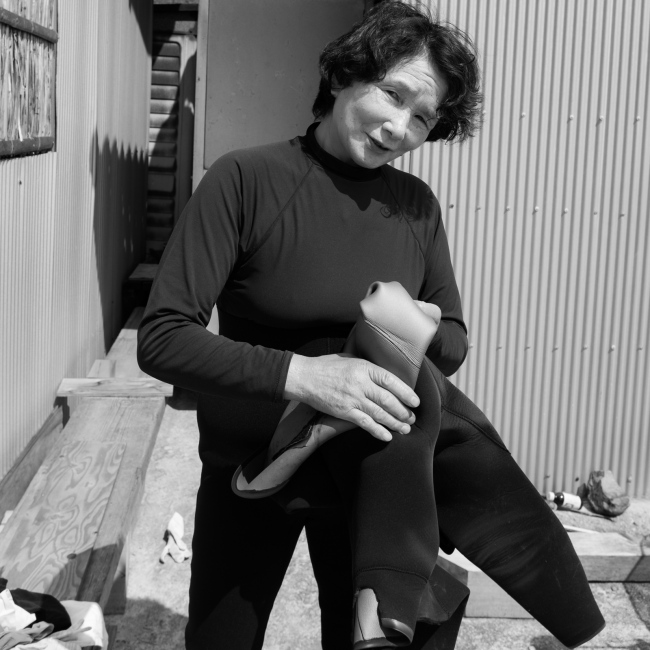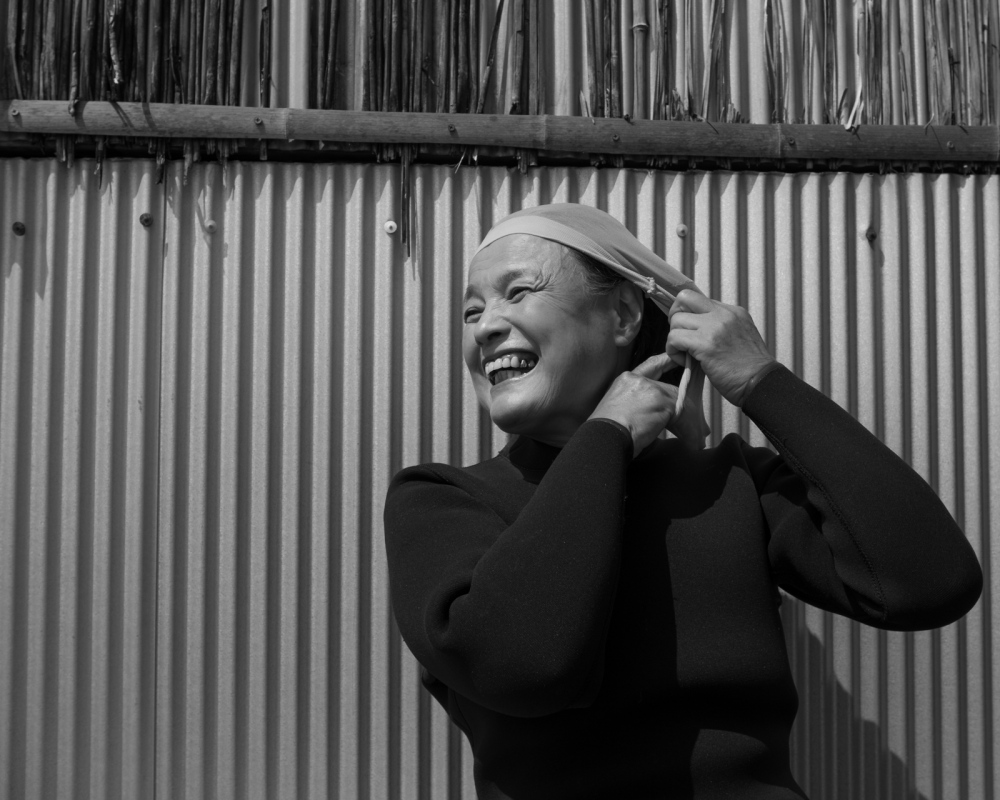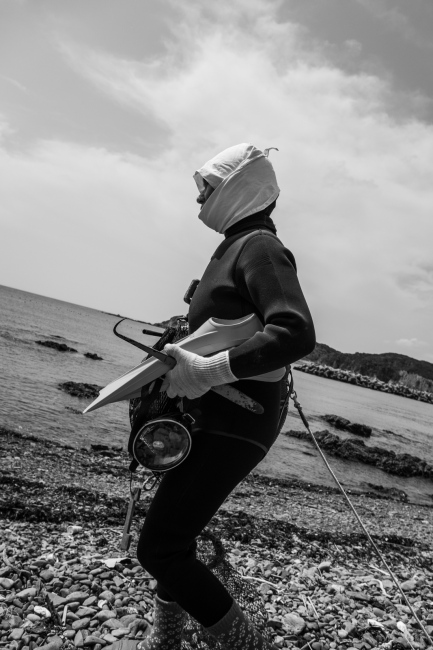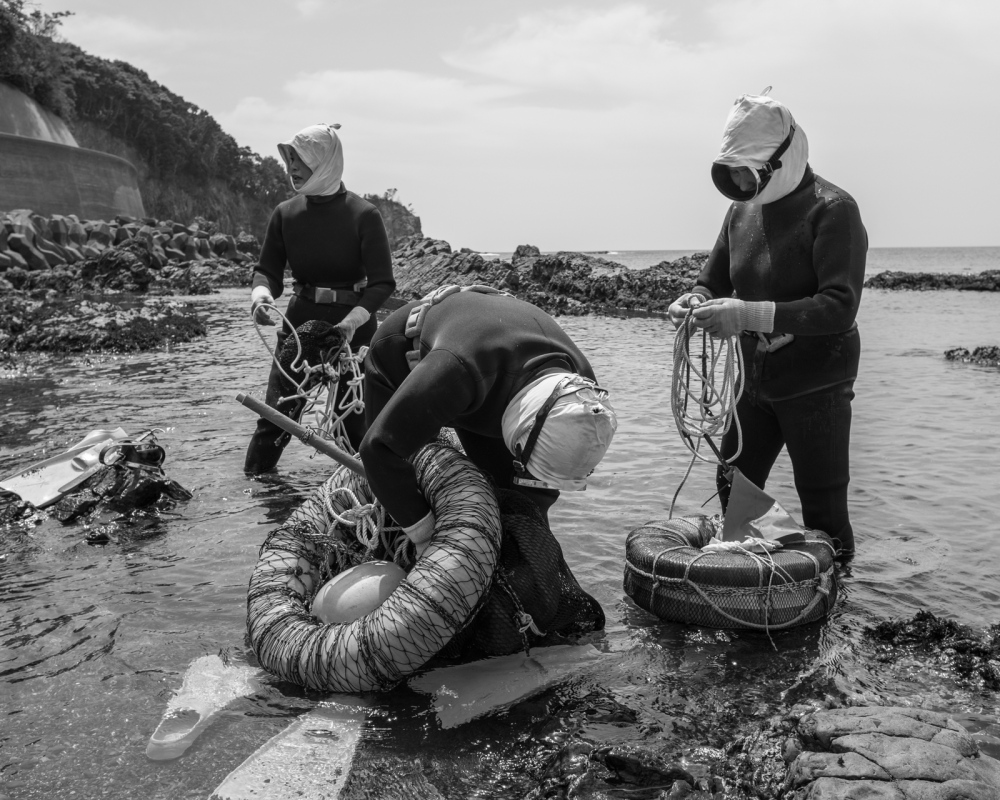Public Project
The Ama - Japan's Aging Mermaids
It's known as the "50 second battle," a dive to depths of up to 30 feet, a minute or more underwater, often times in freezing, low visibility conditions. The prizes are abalone, sea urchin, and other valuable delicacies found hiding in the rocks and reefs off the coast of Japan. The women are called the Ama (or Ama-san, when the honorific is included) and though the work is dangerous and extremely physical, it's now mostly done by women in the 60s and older. There are theories for this"some say the older women can hold their breath longer than younger women"but it's also true that fewer young women are entering the trade. There was a brief resurgence of online interest as some old topless photos
It's not just the Ama, of course: everywhere in Japan, the ancient and the modern coexist in a fragile balance. A man hand-harvests rice in a small plot with the same tools his grandfather and great-grandfather used, then boards a bullet train bound for Tokyo, mobile phone glued to his ear. But the scales are tipping towards modernity and away from tradition. The Japanese, with an abiding love for statistics, have tracked the diminishment of the Ama-san over the past half-century. Between Toba-city and Shima-city, historically the two areas with the highest concentration of divers, the number of active Ama has shrunk by nearly 85% between 1949 and 2010. Younger generations simply show little interest in tackling this difficult job and, as the number of abalone continue to dwindle, so does the economic opportunity. Today's Ama-san may dive five days a month, working other jobs such as farming or tourism to supplement their income. During their heyday 50 years ago, they would be in the water as many as 20 days a month during season.
To the small group of women still practicing in Osatsu, however, the dive, the hunt, and the catch still represent a type of economic and spiritual freedom. When they are upset, they dive; when they are sick, they dive; there is camaraderie that extends beyond the water. And the money they earn is their own, hard won, distinct from that of their husband.
5,355



















